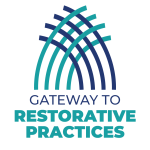Waiting: “Like I Had a Choice”
I’m doing some Christmas shopping at Fig Garden Village in Fresno. My daughter listed some Bath & Body items on her wish list that are on sale today. About eight customers and I wait in line. Waiting for the one clerk to purchase our items. Two ladies are requiring far more time with their purchases […]
Nuggets of Gold from My RP Coach: Working with District and Site Administrators

I’m not an auditory learner. Spending an hour on Zoom with my Restorative Practices Coach Ahija meant I took notes.1 Some of the notes I can’t read because they are too sloppy. However, I managed to capture some of her nuggets of gold. Here are my favorites for working with district and school site administrators […]
2025 Assume Best Intentions & Other Phrases
From My RP Coach Ahija During my eight one-hour Zoom meetings with my RP coach Ahija, she said many powerful statements. My favorite was, “Assume best intentions.” Several others are listed below. I like each of these phrases but today I’m focusing on “assume best intentions.” Assume Best Intentions Todd Cohen, CSP, Keynote Speaker from […]
Celebrating the Impact of the National Restorative Coaching Program with Ahija
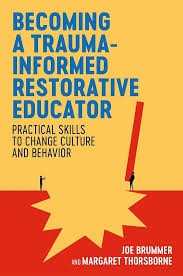
On June 6, 2024, I received some exciting news. I was notified that I was off the year long wait list for coaching. I feel so blessed that I was able to participate in the National Restorative Coaching Program with Ahija last fall. My cohort “graduated” in June so thought I’d share some highlights from […]
2025 What’s New? Moving Forward With Hope
The first line of the email reads: “This month, we turn our attention to hope.” That grabbed me. It came from a newsletter by Greater Good in Education: Science-Based Practices for Kinder, Happier Schools, and it instantly caught my attention. Hope? I can always use more of that. What about you? Home Office and Hope […]
Part 3 Conclusion: Collective Awe During “A Day in the Life of a Scholar Who is a Part of a Restorative Community

Good news we’re finally to the Part 3 Conclusion. But first, Part 2 brief review. The participants rotated through the six Restorative Practices concepts and added content. If you were doing this activity using the campus you work at, what would scholars, staff, and visitors would See? Hear? and Feel? What would you write or […]
Part 2: Collective Awe During “A Day in the Life of a Scholar Who is a Part of a Restorative Community”

A quick review of the collective awe from Part 1. “The room is momentarily silent as each participant contemplates the powerful impact of Restorative Practices in Schools for themselves, scholars, and staff.” I’m also in awe. I ask participants a set of “What if…” rhetorical questions, using a healthy pause between each one. While you […]
Part 1: Collective Awe During “A Day in the Life of a Scholar Who is a Part of a Restorative Community,”

It doesn’t happen very often. It is unusual; even unique. The trainers and educators at Restorative Practices in Schools seminar training have similar responses to content during the eight Saturdays do seminar training. The room is momentarily silent as each participant contemplates the potential powerful impact of restorative practices in schools for themselves, scholars, and […]
End of School Year Circle Reflection for Scholars
By Dr. Marian Fritzemeier, Ed.D. ©2025 With the end of the year fast approaching, community building circles provide a perfect strategy for scholar reflection. In the article, 22 End of Year Questions to Ask Your Students (3 Types of End-of-Year Questions)1 Steph shares that by asking the right questions scholars can foster shared learning, reflect on […]
The Fundamental Hypothesis Meets Fair Process, Part 2
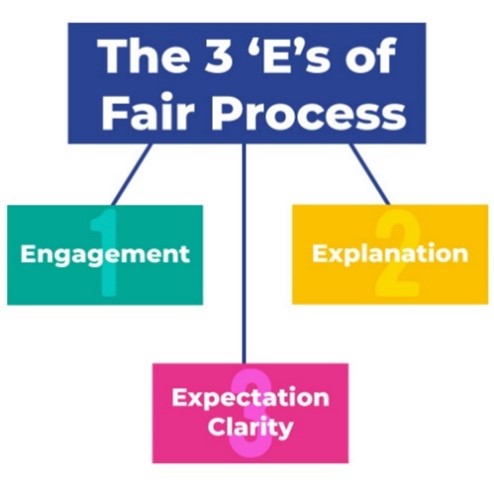
Let’s do a quick review of the part 1 blog post the fundamental hypothesis and fair process statement, both from Ted Wachtel, President of the International Institute of Restorative Practices. “The fundamental unifying hypothesis of restorative practices is disarmingly simple: human beings are the happiest, healthiest and most likely to make positive changes in their […]
The Fundamental Hypothesis Meets Fair Process, Part 1

The other day I was talking with a colleague about educators we work with who have wholeheartedly taken on restorative practices, not only in their education role, but in their home and relationships. One couple immediately came to mind. For this couple and we three trainers, restorative practices isn’t something we just do in our […]
2024 Essential Bullying Prevention Strategies, Part 2
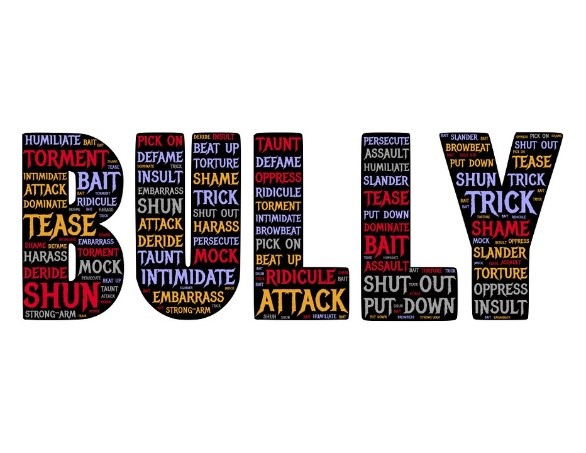
Creating and Fostering a Positive School Climate In part 1 blog we looked at bullying statistics and the differences between bullying and harassment from Essential Bullying Prevention Strategies webinar I attended. In part 2 of this blog we will explore the three key areas that create and foster a positive school climate: Build Strong Relationships, […]
Dr. Marian’s Favorite Quotes for 2024 National Restorative Justice Week

For National Restorative Justice Week, I posted a favorite quote each day. Here are the five quotes I selected and how they connect to my role as a trainer and curriculum creator. The first quote is from Howard Zehr, who is a key figure in modern restorative practices. I use his quote on the title […]
2024 Essential Bullying Prevention Strategies, Part 1

Bullying in schools is just one of a multitude of student behaviors that restorative practices principles and practices addresses. For that reason, I typically don’t attend webinars on bullying. But recently I attended an excellent virtual webinar that intrigued me, Essential Bullying Prevention Strategies Every School Needs by Second Step. Bullying by the Numbers I’m […]
Dr. Marian’s Go-To Graphics Sites

Updated December 15, 2025 I’ll admit it. I learned about using images the hard way. I first used a computer when I was 35-years-old to write my first book. I’m considered a “digital immigrant.” I still stand by that. Computers are a foreign language to me. “Right Click” Doesn’t Mean “Free” When I worked with […]
Canada’s National Day for Truth and Reconciliation: What We Can Learn
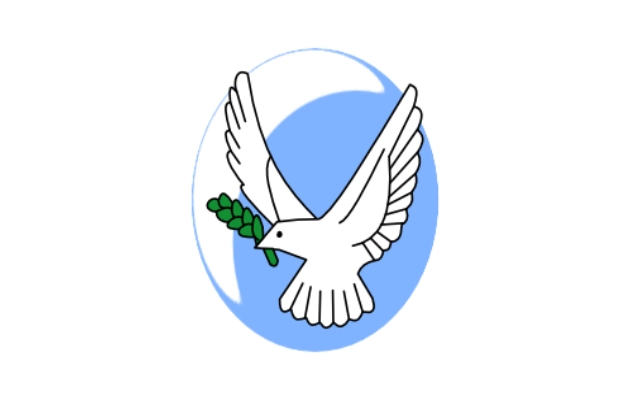
A few days ago, I received a newsletter from the Crisis & Trauma Resource Institute (CTRI). I rely on several such newsletters to stay current in restorative practices related content. Commemoration of this specific day was new to me. September 30 is Canada’s National Day for Truth and Reconciliation. You’re probably familiar with the residential […]
2024 Circles to Repair Relationships Pays Dividends
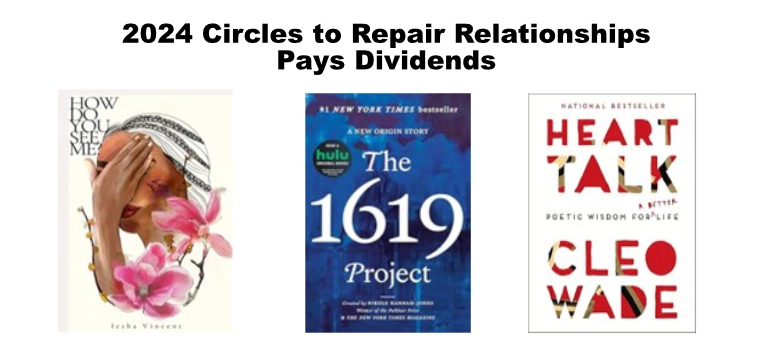
I recently returned from Minneapolis where I attended three days of training on Restorative Practices sponsored by the Minnesota Department of Education. There were so many training topics to choose from. I selected Circles to Repair Relationships, which closely algins with the curriculum I’m developing for 2024-2025. I was not disappointed! I met so many […]
Dr. Marian’s “Go To” Non-California Restorative Practices Program’s Websites: Minnesota Dept. of Ed.

In my last blog, we explored my three favorite California school’s websites. Many educators expressed interest in them. Although some Californians can be arrogant, there are plenty of excellent non-California Restorative Practices program’s websites to explore. Whether I’m developing content for a workshop or all-day seminar, I always provide related resources on the topics. This […]
Check-in Question Generators

For those implementing restorative practices, check-in circles are highly recommended to use with all grade levels. Today I learned about an easy way to access check-in questions online.
Dr. Marian’s “Go to” California Restorative Practices Webpages

Oakland Unified School District
Restorative Practices 101 Seminar
Today I had the opportunity to co-train with a colleague our original all-day seminar, Restorative Practices 101. This is the only time I’m training for RP 101 during the 2023-24 academic year, since I’m doing fewer trainings, and more with curriculum. It was wonderful to train a small group of educators committed to implementing Restorative […]
Dodging the Power Struggle Trap: Relatable and Relevant

“It is only when we prioritize building relationships with our students that they can learn and succeed in the classroom. Specifically, we see increased academic achievement, engagement, attendance, and grades, and we see decreased levels of challenging behaviors and school drop-out.”1,p.65 As a Restorative Practices trainer and consultant, I enjoy that every training opportunity is […]
A Day in the Life of a Student in a Restorative Community
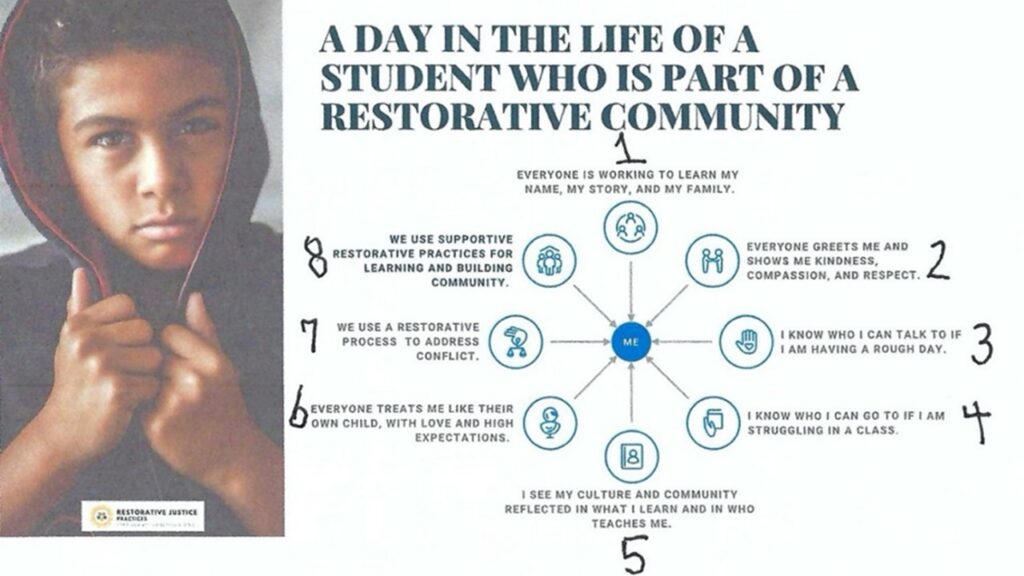
Saturday, January 27, 2024 was the second time four trainers presented our new RP 201 Seminar: From ACEs to PACEs – Building Restorative Relationships. Read more about what we learned…
Pathway to Webpage: Gateway to Restorative Practices
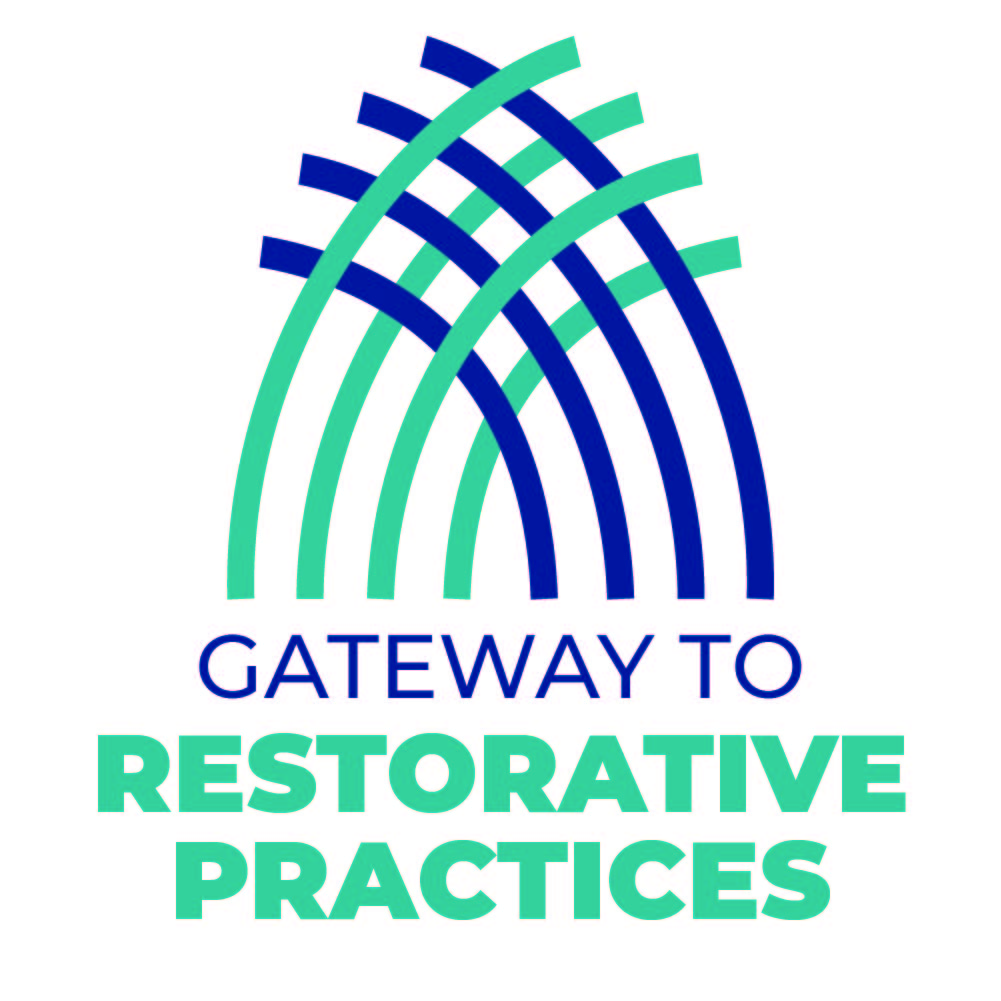
The end of the 2022-23 school year aligns with a decade of adventure as a part-time Restorative Practices in Schools trainer and consultant with a large school district. Over these years my webpage From Diapers to Diamonds offered a dedicated page for Restorative Practices in Schools participants to access. As the need grew, I realized […]
Restorative Practices = Relationships

Many of you know that I’ve been working on creating a curriculum for an all-day new seminar for quite some time. RP 201 From ACEs to PACEs – Building Restorative Relationships launched on October 21, 2023. Some activities went exactly as planned while others need some improvement. I used more quotes than usual in this […]
Restorative Practices Reflection Spring 2023, Part 2

My last blog post was part 1 of this blog post. You can read part 1 at https://fromdiaperstodiamonds.com/restorative-practices-reflection-spring-2023-part-1/ Monthly Collaboration I was blessed to attend SDCOE (San Diego County Office of Education’s) monthly collaboration in April and May. I just registered for the first one in September for the 2023-24 school year. Here’s their description: […]
Restorative Practices Reflection Spring 2023, Part 1

It feels a little strange to write a reflection about recent events, but it will finish the reflections for the 2022-2023 school year. In December I learned that we would be training the District’s newly hired behavior analysts in January. This kept me busy developing tier 3 strategies for them. Also, in January I was […]
2022 Fall Restorative Practices Reflections

The fall arrives sooner than expected. Christina worked diligently during the late summer getting the 34-school site leads scheduled to meet with one of our four trainers for a fall update on Zoom. Twenty-six site team leads spent time with us offering us insight to the transition back-to-school after Covid-19 and their restorative practices plans. […]
Participants’ Myths About Restorative Practices Declines

During the first five years that I did Restorative Practices in schools trainings, much of my time was spent dispelling myths. Participants arrived at full-day seminars and workshops proudly ready to share their knowledge about RP. Unfortunately, most of their information was incorrect, but these participants were also operating at their school sites under the […]
Am I Triggering Power Struggles with Students?

My colleagues and I had the opportunity to observe every three weeks at 12 junior and senior high schools at the newly established Intervention Centers. We spent about one and a half hours at each site. As a restorative practices trainer and consultant, I had the opportunity to witness many reasons students are sent to […]
Why Didn’t I Include Restorative Circles in Every Workshop?
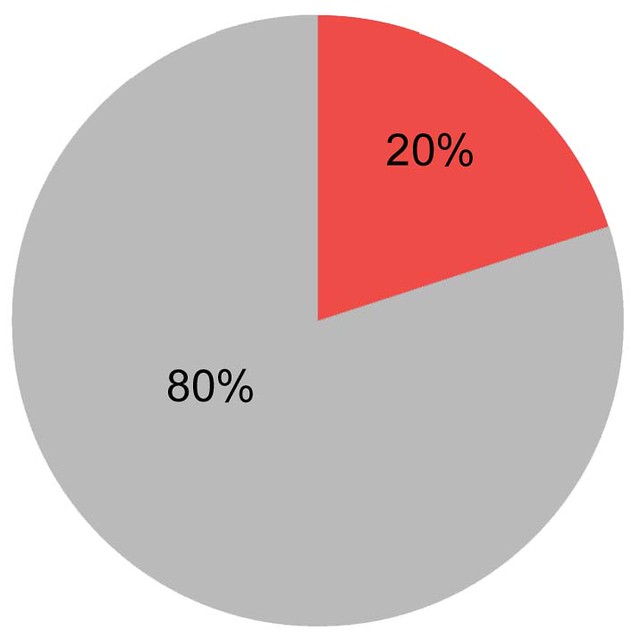
Over the past nine years I’ve created over 40 one-hour workshops in addition to full-day trainings on restorative practices in schools. I’m an absolute research nerd. People don’t typically get their doctorate if they’re not. I’m cognizant of how many hours of research I do for a given topic and keep the end goal in […]
Using Circles to Review Homework Assignments, Part 2
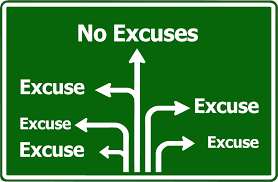
In my last blog post, Using Circles to Review Homework Assignments, Part 1, I featured Frederick Community College’s circle approach around homework. Community college students struggle with completing assignments like many of our students do. Students need help meeting the challenges that keep them from completing assignments. One type of circle was featured in my […]
Using Academic Secondary Concentric Circles for Test Reviews

As a restorative practices trainer and consultant, I challenge educators to build relationships with students. When working with secondary educators, I often hear, “I don’t do relationships
Using Academic Content Circles to Explore Presidents Day

Do your students know why they get two days off from school in February? Many lower elementary grade teachers do activities that center on Presidents George Washing and Lincoln. As students move to upper grades, educators can still focus on the meaning of Presidents’ Day. Academic content circles are a perfect way to re-mind students […]
Do Restorative Questions Work with Kindergarteners?
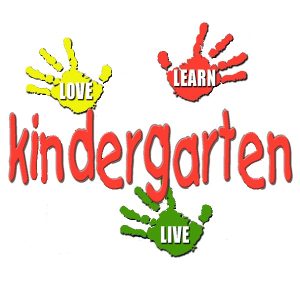
My colleagues and I train school site staff in an alternative to traditional punishment called Restorative Practices. The most basic skill is asking children and adolescents affective questions. We often assume we know what happened, but many times we don’t. We only see part of the story. Sometimes I get asked if restorative questions work […]
Building Circles & Community Around Picture Books! A Restorative Practices Book Review
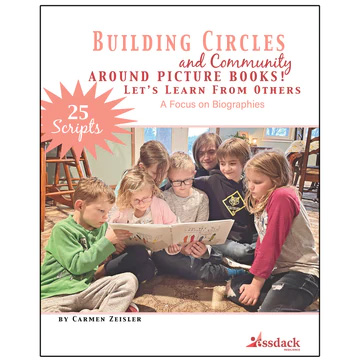
Last spring, I attended a virtual workshop led by Carmen Zeisler on Building Circles and Community Around Picture Books. I was so inspired, I began creating circles scripts for kindergarten through third graders on social justice books and developed a new workshop on the topic for the school district I work with in Modesto, CA. […]
Site Team Member’s Responsibilities & Training for Implementing Restorative Practices in Schools
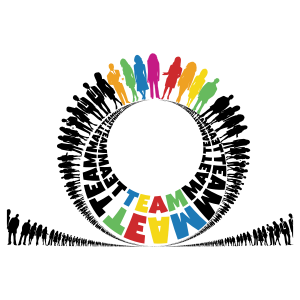
In a previous blog post, The Role of the Site Team Lead & Consultant in Implementing Restorative Practices in Schools, I suggested that schools wanting to implement restorative practices use a site leadership team approach under the direction of a vice-principal or assistant principle typically designated by the school principal. In turn, the site team […]
Encircled: Bringing Family Virtue Circles Home – A Restorative Practices Book Review
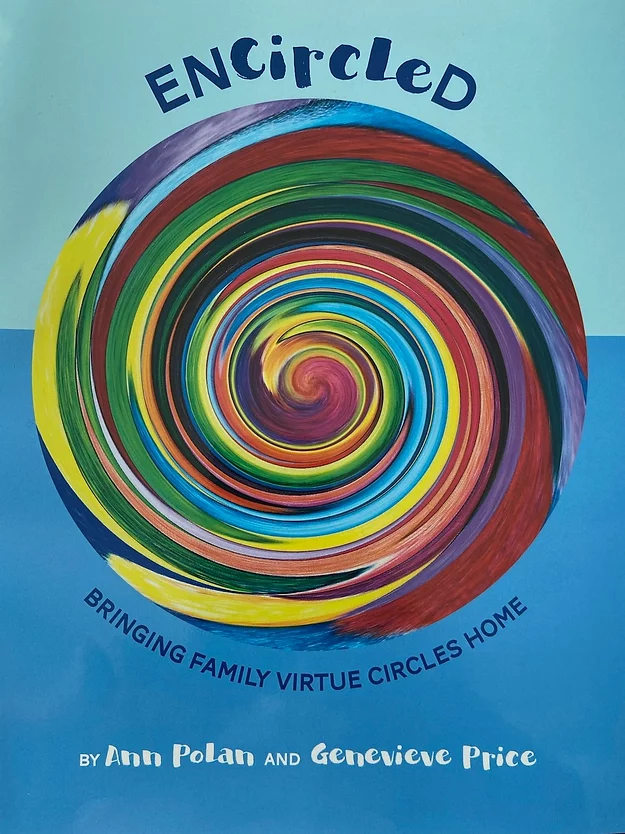
Before I learned about this book, I met one of the authors, Genevieve Price, through a referral from Restoration Matters. I was looking to talk with someone who is actually doing restorative practices with preschoolers. I was so inspired listening to her stories about how she adapts the concepts of restorative practices and how she […]
Virtue-Based Restorative Discipline: Comprehensive Guide – A Restorative Practices Book Review
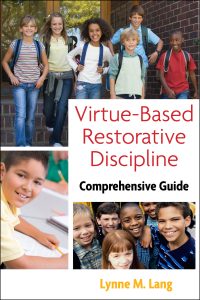
Before I learned about this book, I met the author, Lynne M. Lang, founder and Executive Director at Restoration Matters. She contacted me through LinkedIn. I’m always happy to connect with a restorative practices colleague. I do my restorative practices training for a large school district through Central Valley Youth for Christ while she does […]
The Role of the Site Team Lead & Consultant in Implementing Restorative Practices in Schools

Implementation Team There are many ways to implement restorative practices at schools. The cost of training every person in a district can be prohibitive. When I created the restorative practices in schools program for a large school district in Modesto, CA, I developed a site team system that includes administrators, certificated staff, classified staff. It […]
New Workshop: Restorative Practices and Picture Books
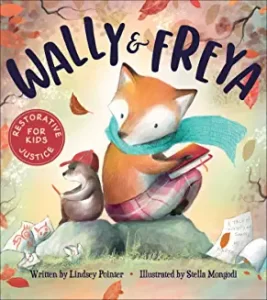
It is summertime and I’m working on some new restorative practices workshops for this school year. The one I’m most excited about involves children’s picture books. As a former child development professor, I love children’s books. Social Justice Books I was inspired by a workshop during the Restorative Justice World Conference in April by Carmen […]
2022 Expulsions and Suspensions for Preschoolers
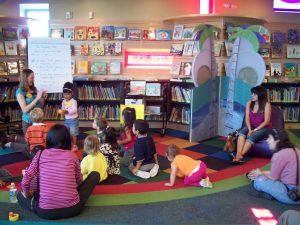
Last week I did an all-day training for an elementary sited called Restorative Practices 101. It is a six-hour overview of restorative practices in schools with an emphasis on practical skills educators can use the next day. A state preschool teacher expressed interest. “I’d like to use restorative practices with my preschoolers.” “That’s exciting. I’m […]
Restorative Questions and Reasons We Don’t Ask, Why?

What are Restorative Conversations? A restorative conversation is any conversation that uses restorative questions in which an issue is approached with an open mind to: Traditional Restorative Questions The International Institute of Restorative Practices sells business sized cards that ask the restorative questions. Side 1 are the questions to ask the offender, the person who […]
Why We Don’t Ask, “Why did you do that?”

Have any of these situations ever happened with your kids? When a parent discovers one of the dilemmas above, the first question that spurts from his/her mouth is, “Why did you do that?” quickly followed by, “What were you thinking?” Parents and teachers, here’s the answer: They don’t know why they did that. Plus, your […]
Pushing Students Out of School: How Did We Get Here?
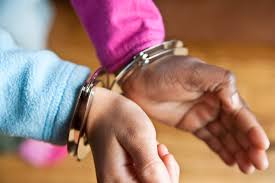
Why did laws intended to make schools safer backfire? Zero Tolerance In 1994 schools across the United States implemented Zero Tolerance policies after federal legislation required expulsion for one year when students brought a weapon to school. Many schools expanded this policy to reduce possession or use of illicit and prevent violence. A multitude of […]
2022 International Institute of Restorative Practices Conference Changes Lives

Seven hundred people from all over the world virtually attended the International Institute of Restorative Practices Pathways to Social Change Online Conference last week, January 26-28. Three restorative practices trainers and I were able to be a part of this significant time. Put 20% First Cami Anderson, Director of Third Word Solutions, says that if […]
What’s Restorative Justice Anyways?

As I train restorative practices for educators in a local school district, many of you may wonder, what am I talking about? Definition & Goals Howard Zehr describes the concept as, “Restorative justice is a process to involve, to the extent possible, those who have a stake in a specific offense and to collectively identify […]
Intervention Strategy #2: Model Problem-Solving Skills

Adults can offer verbal and/or physical help to model problem solving. This helps students recognize and name feelings, identify problems, and come up with ideas for solving the problem, and try possible solutions. Four Steps to Problem-Solving1 Whether the problem relates to playground balls or interacting with others, modelling problem-solving methods shows students different ways […]
Intervention Strategy #1: Re-direct

My husband and I have seasons tickets to Fresno State football games. On game day, certain streets are only one way while others may be closed to thru traffic. Cars and people are re-directed to help the traffic flow better. Redirection Re-direct defined is the action of assigning or directing something to a new or different […]
Prevention Strategy #10: Be Alert to Total Situation
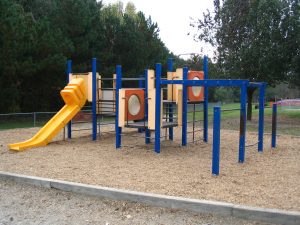
Use the most strategic positions for supervising students to ensure their health and safety. Observing the total setting involving students is essential to effective guidance. Proximity: stay close by when younger children are still learning to play together. Keep moving! Activities can change constantly. Be Alert Observe and engage students in activities. If you’re alert, […]
Prevention Strategy #9: Ignore Minor Incidents

This is the first of two strategies that is way underused. Sometimes parents and educators think that they must intervene in every situation which is simply not true. “Adults who work with young children need to develop tolerance for a certain amount of noise, clutter and attention seeking behaviour. As long as children’s activities are […]
Prevention Strategy #4: Confident Tone of Voice

Myth: The louder we speak, the greater chance of controlling behavior Yelling produces yelling. The louder an adult gets, the louder children get. Negative examples of confident tone of voice: screaming, swearing, name calling, shouting, or sarcasm. Incorrect Response: Educator: Says in a loud voice to a group of students across the hallway, “Line up. […]
Prevention Strategy #3: Offer Straightforward Explanations for Limits

When students (and adults) understand the reasons or rationale for limits, they are more likely to comply. They may not like it, but at least they understand the reason. Teaching students the “why” of a limit helps them internalize and learn the rules of social living. Offer Explanations Here’s some examples. “The sand stays down […]
Prevention Strategy #2: Make Limits Effective
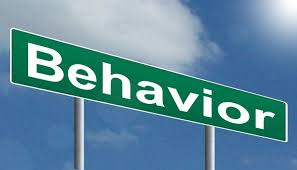
We looked at prevention strategy number one. Today we’ll look at prevention strategy number two make limits effective. Direct Instruction We make the mistake of believing children know how to line-up, listen, walk in hallways, share, take turns, etc., but often they do not. Provide direct instruction and opportunities to practice desired behaviors. Example: “Samantha, […]
Prevention Strategy #1: Establish Clear, Consistent and Simple Limits
We looked at ineffective guidance strategies in my last blog. Today is the first of ten prevention strategies, part of 13 guidance strategies that work. The first strategy is establish clear, consistent and simple limits. What are Limits? “Limits are statements of what behavior is appropriate. They ensure students know what is expected. Limits should […]
What Guidance Strategies Don’t Work?

Before we look at what works with children or students, let’s look at what doesn’t work. What guidance strategies don’t work with children or students? Ineffective, Inappropriate and Unacceptable Guidance Strategies If you’re like most parents or educators you’ve tried some of these to no avail. You’ve probably discovered that they are ineffective and don’t […]
Restorative Practices Changes You

Often we focus on how restorative practices can change our students and school climate. But it can also change us…those responsible for implementation. One Cohort 2, year 3 administrator tells his/her story. “Restorative practices has affected me personally by changing the way I interview and question kids about behaviors by using restorative questioning techniques. This […]
Fake Apologies

You’ve heard of fake news. Well there are also fake apologies. We shouldn’t be surprised that students can by cynical about apologies. They may wonder what’s in it for them. Teacher Rosalind Wiseman says, “They witness ‘fake’ apologies amongst their peers and see adults who treat them disrespectfully, abuse their power and who would never […]
Start a Gratitude Journal During COVID-19

“Gratitude is taking a snapshot of an outstanding moment and filing it away in your heart.” – Coach Bobbi A lot of what we hear and see these days about the COVID-19 pandemic is frightening and upsetting. “Journaling is an amazing tool for working through your thoughts and emotions, which can be incredibly helpful during chaotic […]
Stay Calm & Step Away During the COVID-19 Pandemic
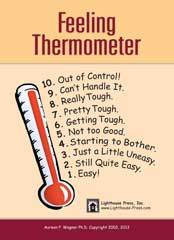
With the onslaught of COVID-19 information it is easy to become worried and anxious. Some states are ending their stay-at-home orders while others are holding on. Here are a few tips on staying calm and stepping away during the pandemic. Try to be a source of calm for your loved ones.1 It isn’t easy with […]
Be Gentle with Yourself and Those Around You During COVID-19

“We know that it’s important to show compassion for others, but how often do we show that same level of kindness to ourselves?” asks Emily Ferguson, author of 10 Different Ways to Practice Self-Care.1 Step back Ferguson says, “Step back and remember that you are worth the love and care that you give others. Many […]
What is Working & Not Working During COVID-19?

“Take care of yourself and others” is a message I repeatedly hear on the news and commercials. Good advice especially during the COVID-19 Pandemic. But what is meant by self-care? Self-care is, “Our ability as human beings to function effectively in the world while meeting the multiple challenges of daily life with a sense of […]
Mental Health During COVID-19 Pandemic

With the shelter-in-place orders due to the COVID-19 pandemic, the restorative practices staff at Youth for Christ are planning a webinar, Self-care During the Corona Virus. I did research and chose 10 tips for the workshop. I thought you’d find some of the information and tips helpful as well. But first, I found something surprising. […]
New Restorative Practices Book
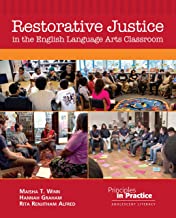
Always on the lookout for new restorative practices resource books I’m delighted with my latest find, Restorative Justice in the English Language Arts Classroom. This five-chapter, 126-page book by Maisha T. Winn, Hannah Graham, and Rita Renjitham Alfred integrates restorative justice principles throughout as it applies to English Language Arts (ELA) classrooms. More than assignments […]
What is Bullying?
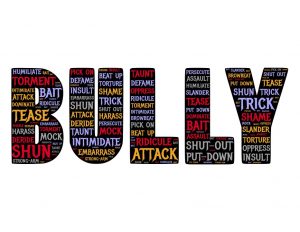
How would you describe bullying? Has your child been bullied? Have you? When I taught a workshop at the California Association for the Education of Young Children (CAEYC) in Pasadena for adults working with children in the primary grades. Over 50 educators actively participated in my workshop: Bullying 101: Helping the Bully, the Bullied, and […]
Yard Supervisors and Campus Supervisors Serve on Campus’ Front Lines

This week I had the privilege of training yard supervisors for Modesto City Schools for two days and one day for campus supervisors. In honor of their dedication to students and the start of another school year, I’m re-posting this blog. Thanks for your investment in our community’s children. The men and women whose job […]
Completing the Circle

If you are working with Restorative Practices in Schools then you know that there are not as many resources for working with elementary children as there are for junior and senior high students. I discovered a booklet focused on 9 to 12 year olds by Professor Rick Kelly from George Brown College in Canada that […]
Ten Ways to Live Restoratively by Howard Zehr

Source: Zehr, Howard. The Little Book of Restorative Justice. Appendix IV. New York: Good Books, 2015. Note: Appendix IV is a resource that may be useful to the reader or for use in discussions or presentations. It may be reproduced with proper citation. Image Source: refresh-reload [pixabay.com]
Restorative Practices Changes Treatment of Students
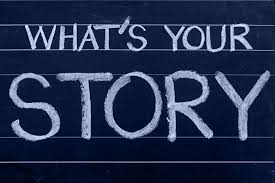
Often we focus on how restorative practices can change our students and school climate. But itcan also change us . . . those responsible for implementation. One Cohort 2 (2014-2015), year 3 administrator tells his/her story. How has restorative practices affected you personally? Image Source: Chalkboard [pixabay.com]
Experts’ Advice on Implementing Restorative Practices in Schools

This post features advice from experts in the trenches, a certificated staff as well as an administer, both from Cohort 2, Year 3. With only four weeks of school left, this is great advice to keep in mind. Site Team Leads (Administrator) Advice: Certificated Staff Advice: Which of these advice tips can you use this […]
Fabulous New Restorative Practices Resource

Every few months I scour the internet for newly published restorative practices in schools books and resources. Don’t Suspend Me! An Alternative Discipline Toolkit is more of a resource than a book. You’ll want this resource for you school site. Book Review Here’s the review I submitted on Amazon Books. “I shared this book with […]
Shoving Stops Using Restorative Practices Questions

A certificated staff from El Vista shared her story using RP questions. “One boy shoved another into a girl, knocking her over. So I met with both boys. I asked Student A what happened. He told what he did. Student B agreed with his recounting of the event. I asked Student A what he was […]
Colorado RJ Coordinator Hosts California RP Trainer
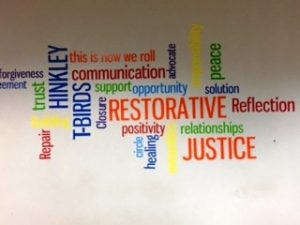
I was thrilled when I found out I was going to spend a week in Denver with my husband in late January. He’d be involved with the Youth for Christ National Office. I knew immediately I could visit some schools and districts that are further along in implementing restorative practices (RP) than we are in […]
Learning at RP International Conference in Historic Bethlehem, Pennsylvania
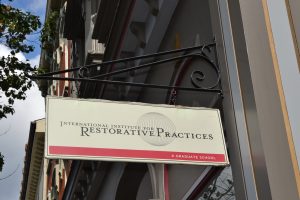
I’m in the beautiful historic city Bethlehem, Pennsylvania for the International Conference on Restorative Practices sponsored by the International Institute of Restorative Practices (iiirp). Today’s been a great start to the conference. I began the day attending the workshop Students Lead: Developing a RP Student Leadership Team. This is a missing component in the training […]
First Grade “New” to Kinders: Parent Action Tips
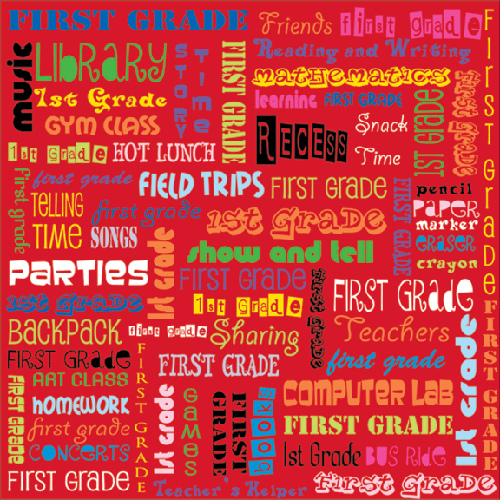
By Dr. Marian Fritzemeier, Ed.D. Your first grader now attends school all day rather than the typical half day kindergarten at most schools. Parents may feel confident their child is used to school routines, but several aspects of first grade are “new” to kinders. Here’s what may be “new” in your child’s first grade day and […]
What’s New for Restorative Practices Educators?
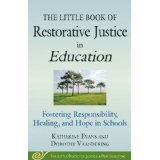
Are you implementing restorative practices (RP) at your school? Do you wish there was a book that explains RP to students? Are you thinking about RP ideas for the fall? Wait no longer. Three new books about RP in schools are scheduled for release over the next few months. Book 1: RP for Students What are […]
Why Forcing “I’m Sorry” Doesn’t Work
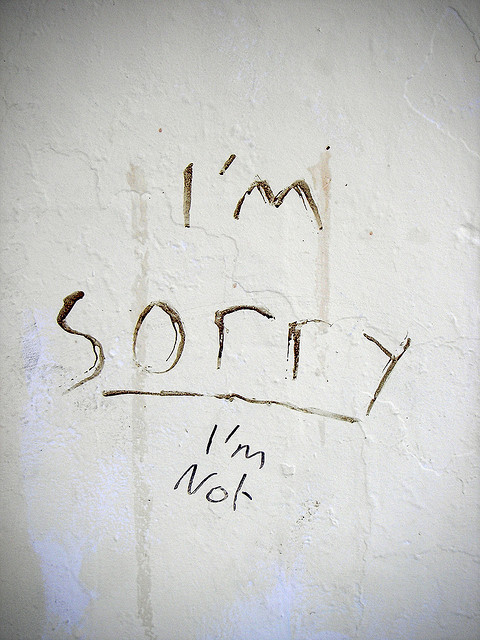
You’ve probably witnessed a forced apology. Parents tire of siblings arguing and don’t know what to do. Often they resort to apologies. The frustrated parent commands, “Tell your brother you’re sorry.” “I’m sorry,” he replies in a clipped voice. “Now, you apologize,” the parent nods towards the other child. “I’m sorry,” the sibling replies grudgingly. […]
Book Review: The Trophy Kids Grow Up
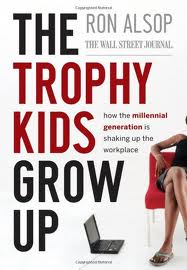
When I talk with community and business people about challenges they’re facing with today’s workforce, I frequently share one of the most relevant books I’ve read addressing this topic. The Trophy Kids Grow Up: How the Millennial Generation is Shaking up the Workplace. Author Ron Alsop traces this phenomenon and how parenting the Millennial Generation […]
Marian’s Teaching Philosophy Pt. 6: Ongoing Reflection & Assessment

I’ve enjoyed sharing my teaching philosophy. Today is the sixth and final component of my philosophy. Ongoing reflection and assessment ties all the components together. Reflections and assessments range from formal, such as course or tenure evaluations, to informal, such as sticky notes I write to note changes. Not only do I make modifications during […]
Marian’s Teaching Philosophy, Part 5: Multimodality Teaching & Learning Styles
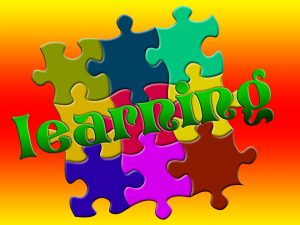
A multimodality teaching style is my teaching philosophy’s fifth piece. I display an innovative and refreshing teaching style by utilizing methods that engage visual, auditory, and/or kinesthetic learners. A big picture view My teaching style begins by looking at the topic’s big picture. I research and gather content and ideas from sources beyond the textbook(s). […]
Marian’s Teaching Philosophy, Pt. 4: Educating Students Across the Curriculum

The fourth facet of my teaching philosophy is educating students across the curriculum. I regularly integrate science, history, and math skills into content. Interconnected learning When I’m teaching fetal development, I’m teaching genetics and biology. When students calculate square footage for a classroom using cell phones, I’m reinforcing math skills. These activities help students realize […]
Marian’s Teaching Philosophy, Pt. 3: Content & Curriculum Expertise

My content and curriculum expertise serves as the third philosophy facet. Although I possess advanced degrees, I am a life-long learner, avid reader and researcher, and conscientious about maintaining cutting-edge child development and education knowledge. This requires participating in professional associations and conferences and learning from colleagues. I thoroughly enjoy returning from training and incorporating […]
Marian’s Teaching Philosophy, Pt. 2: Students & Teacher Learning Together

I’m sharing a series on the six facets of my teaching philosophy. The foundation of my philosophy is creating a safe and inclusive classroom environment. My second teaching philosophy concept is that students and teacher are all learning together. As a vigorous and enthusiastic professor who enjoys education and interacting with students, I include myself […]
Marian’s Teaching Philosophy, Part 1: Creating a Safe & Inclusive Learning Environment
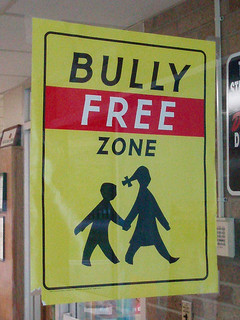
My coursework at Fresno State laid the foundation of my teaching philosophy. Through years of experience and refinement, my philosophy includes six components: creating a safe environment; we are all learners; content and curriculum expertise; education across the curriculum; multimodality teaching style; and reflection and assessment. Today I’ll address my first component. The foundation of […]
Restorative Justice: Oakland Schools Report Significant Positive Results
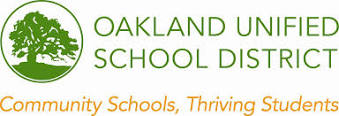
The Oakland Unified School District reports significant positive results using restorative justice at many of their sites, including elementary, middle, and high schools. I’m only on page 29 of the 85 page report, but I just couldn’t wait to share some of the significant, positive results with educators, parents, and those I’m training in Restorative […]
Quiz: Are you a Helicopter Parent?

“Helicopter parents can be identified by their tendency to hover close to their child, ready to come to the rescue at the first sign of difficulty or disappointment,” explains Indiana University psychologist, Chris Meno. (1) She counsels “over-parented” college students on gaining independence. “Helicopter parents can be identified by their tendency to hover close to […]
